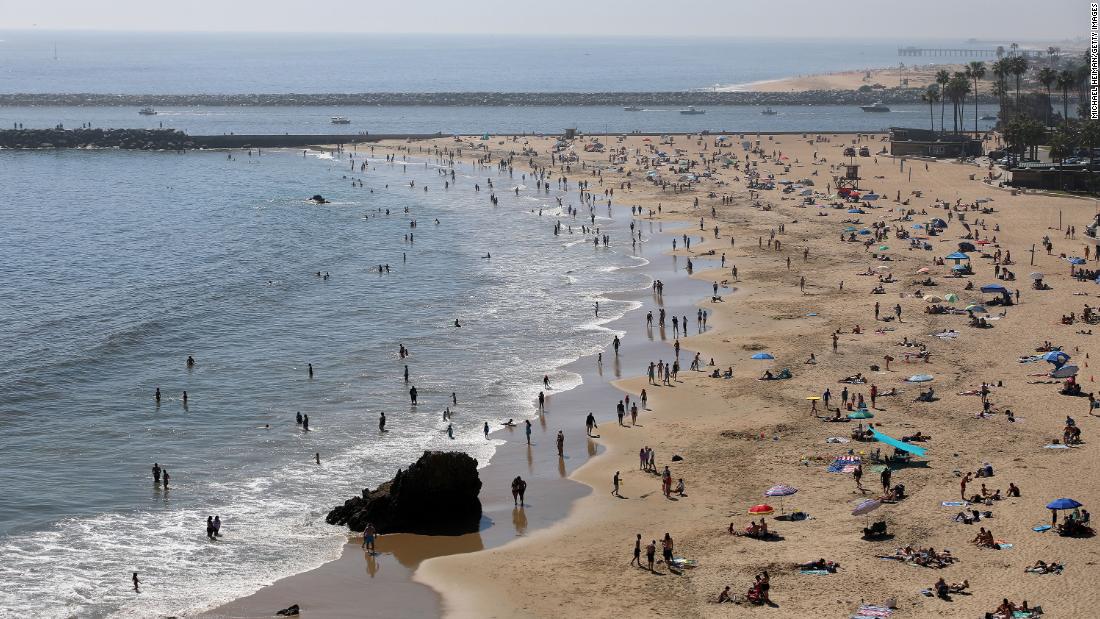[ad_1]
“I know that the people are eager to return to normal activity and ways of life,” said Dr. Robert Redfield, director of the US Centers for Disease Control and Prevention, on Friday. “However, it is important that we remember that this situation is unprecedented and that the pandemic has not ended.”
The CDC on Friday released long-awaited updates to its guidelines for social distancing and times and places where that is difficult.
In general, the CDC says people should protect themselves by practicing everyday preventive actions, like wearing cloth face covers, not touching your face with unwashed hands, washing your hands often, social distancing, disinfecting surfaces and staying home if you are sick.
Hosting get-togethers
• The virus that causes Covid-19 likes stuffy, enclosed areas so well-ventilated areas are better — open the windows — and outside is best.
• When guests arrive, show them where they can wash their hands.
• Arrange tables and chairs so families can sit together but groups are 6 feet apart.
• If you serve food, have one person do it, but it’s better if people bring their own.
• Make a list of who attends, just in case someone who came turns out to have been infected and you have to tell people.
• If possible, have a virtual get-together. It’s the best way to avoid getting infected
Traveling overnight
• Ask the hotel what their cleaning/disinfecting policy is for frequently touched surfaces.
• If doing your own disinfecting, wear disposable gloves, follow product directions and make sure there’s good ventilation.
• When walking through a hotel, try to take the stairs
• Try to use the places where you might end up within 6 feet of other people — dining areas, fitness centers, game rooms, hot tubs, lounges, pools, salons, saunas and spas — as little as possible.
Going to the gym
• Wipe down machines and equipment with disinfecting wipes and use hand sanitizer
• Know that locker rooms might only be open so people can use the toilets and sinks
• Wear a mask during low-intensity workouts
• Consider doing any vigorous exercise outside
• Don’t share items like resistance bands or weight belts, as these are not cleaned or disinfected between each use
• No high-fives or elbow bumps
• Limit your number of indoor group fitness classes
Going to nail salons
• Reserve a spot if you can
• Wait in your car, if possible, giving the shop a cell number to contact you. Or wait outside.
• Before they start, wash your hands or use hand sanitizer.
• Pay with your phone or use other cashless options. If you using money or a card that is touched, use hand sanitizer.
Riding public transportation
• Check for any route or schedule changes to avoid lengthy trips
• Try not to touch kiosks, ticket machines, handrails, elevator buttons and surfaces in the restrooms.
• Try to have a row of sets between you and others
• After you leave the station use hand sanitizer
• When you get to where you were going wash your hands
Using libraries
• Go online and check out material in advance, if possible.
• Check out digital materials and if not, request curbside pickup
• Wash your hands before you go and after someone hands you your material.
• If you are using a computer at the library, make sure it is disinfected. Only one person should use the computer.
[ad_2]
Source link





